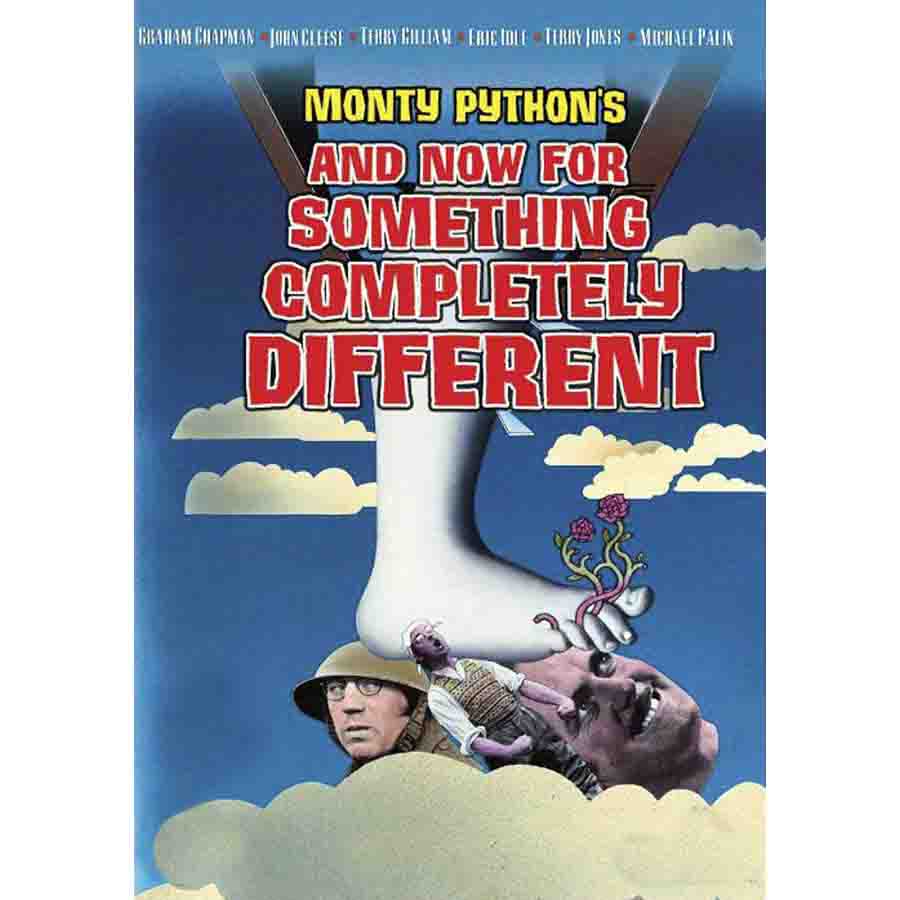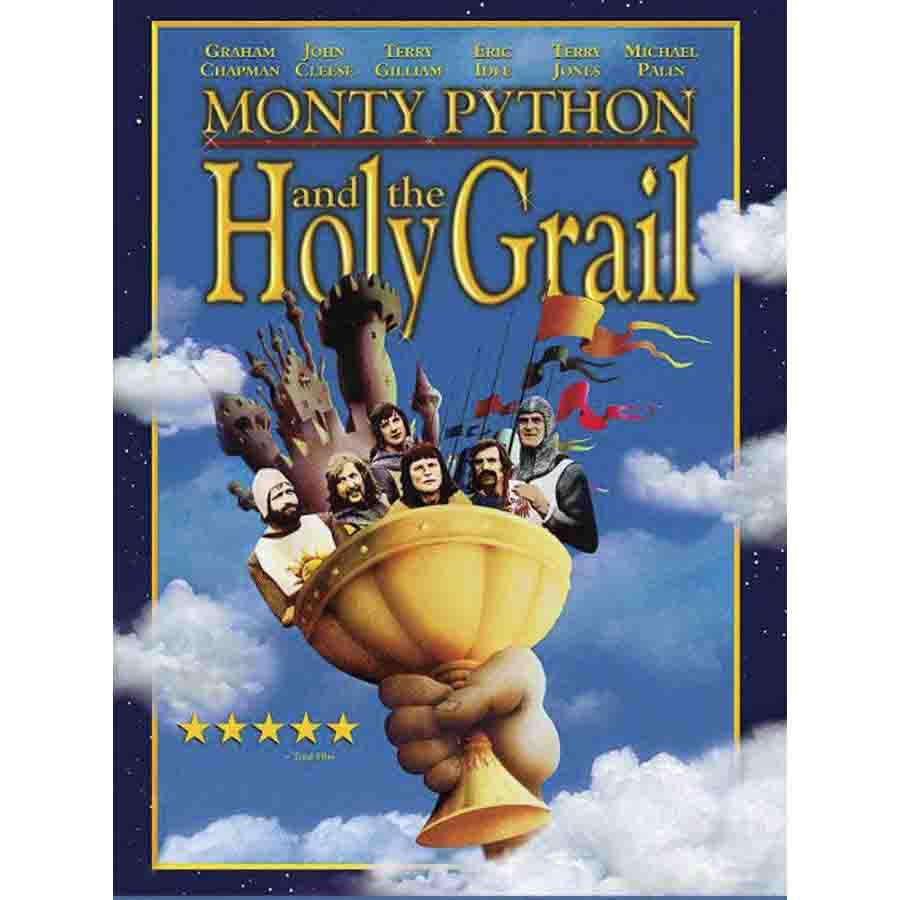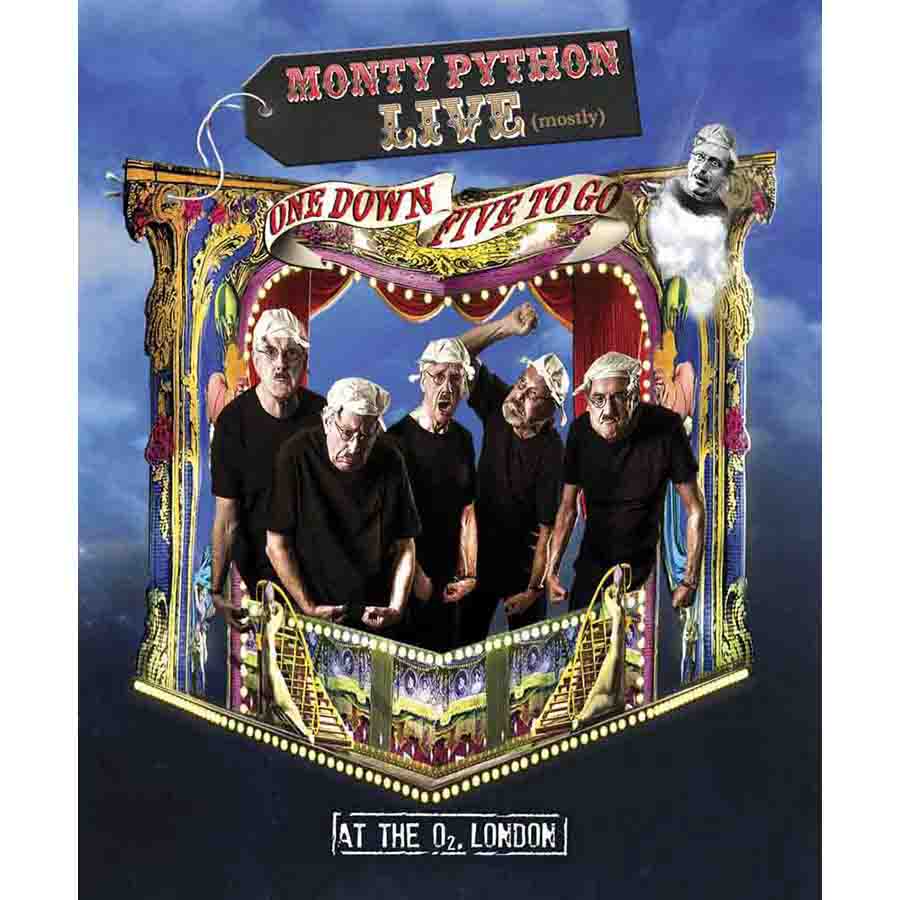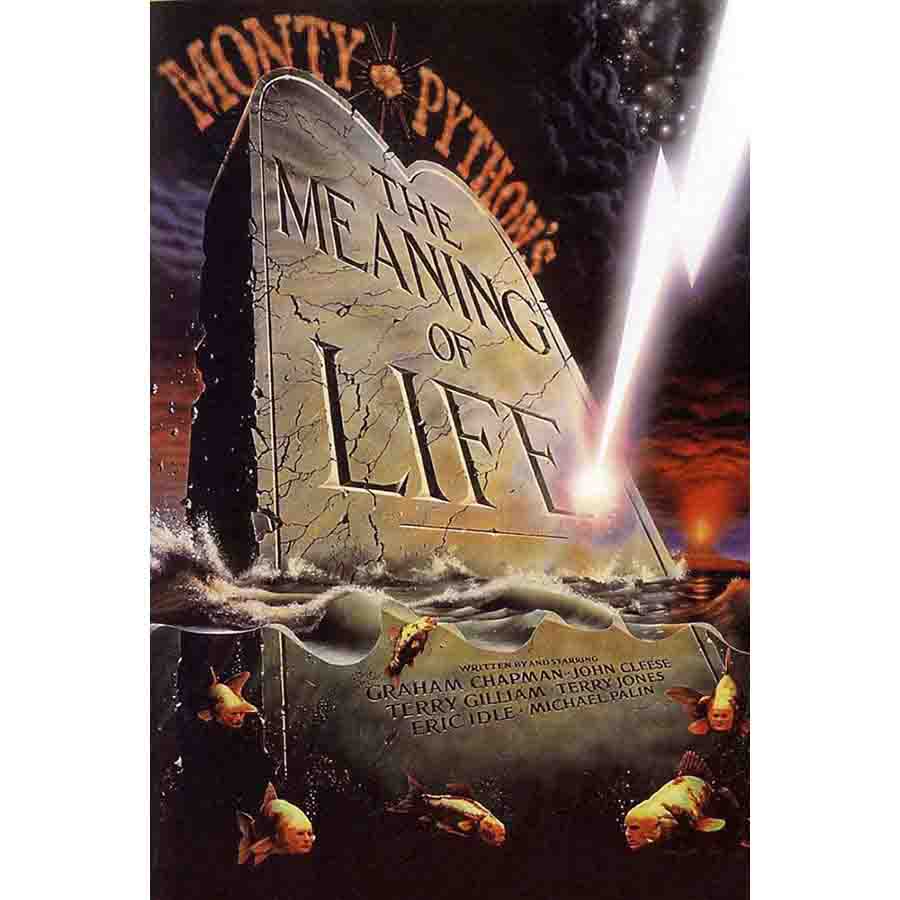- FILMS -
-
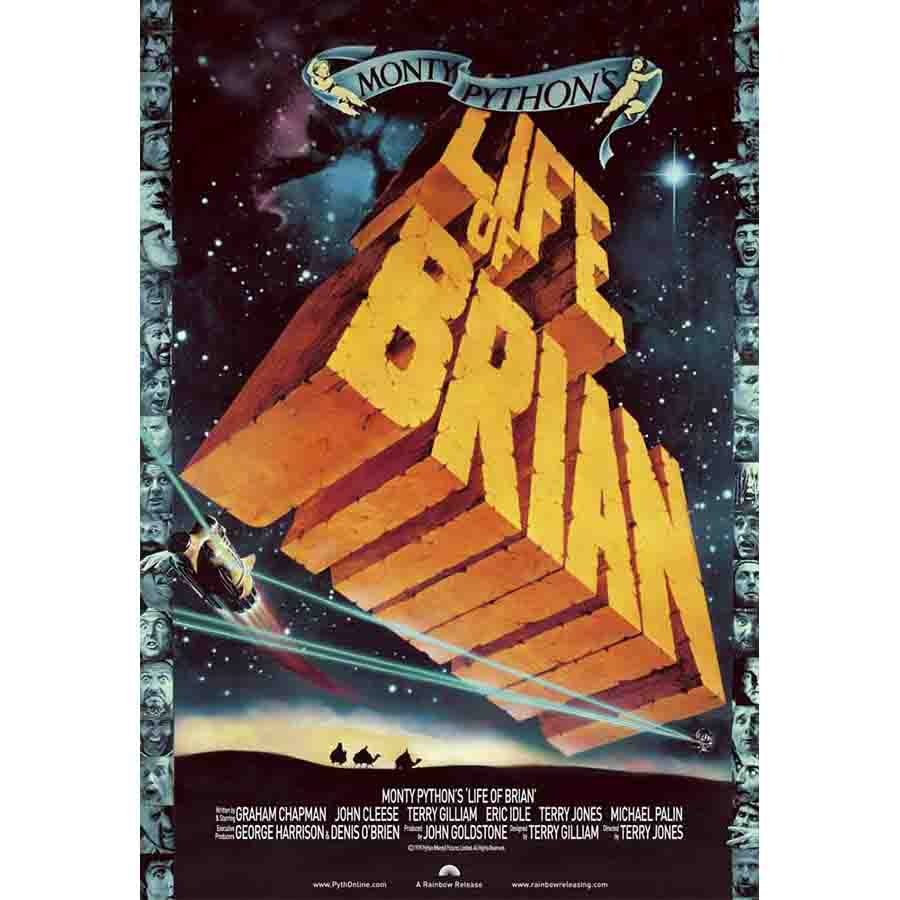
Monty Python's Life of Brian (1979)
"Life of Brian"
Director: Terry Jones
Producer: John Goldstone
World Premiere: New York City, 17 August 1979
Running Time: 1:34
"Life of Brian" tells the story of a young contemporary of Jesus who through happenstance suddenly finds himself to be an adored holy figure. The film marked maturation for the group, for while "Brian" lacks the breezy innocence that "Holy Grail" exuded (and is much less self-conscious that it is a movie), it is a complex, thoughtful and ultimately moving portrait of a character and his period. It is also very funny.
Synopsis
As the film opens to a choir of the heaven host, Three Wise Men follow a star and arrive at the modest abode of an infant and its mother, who gratefully accepts the gold and frankincense (and even the myrrh) that are presented to her child, named Brian. These gifts are then briskly confiscated when it's discovered that a certain Son of God is lying in the manger next door.
The infant grows into a young man (played by Graham Chapman), who is initiated into a revolutionary group trying to free Judea from the Roman occupiers. Brian stumbles into the role of spiritual leader when he is mistaken for the promised Messiah, and the masses trail after seeking blessings and guidance. Burdened with the celebrity of his new position, and now a target of the ruling class, Brian tries to rid himself of his followers by professing that they do not need leaders for their faith. "You are all individuals!" he shouts.
"Yes! We are all individuals!" they shout in unison.
Imprisoned by the Romans and sentenced to crucifixion, Brian watches from the cross as in his coming death he becomes an object of admiration, parental scorn, and inspiration for a jaunty parting song.
"Life of Brian" is adorned with some surreal passages (Brian escapes certain death by being whisked aboard a passing spaceship), and filled with wildly eccentric characters: the Jewish Official (John Cleese) overseeing the community's stoning of a blasphemer; the Virgin Mandy (Jones), Brian's mother, who tells the assembled throngs that her son is "not the Messiah – he's a very naughty boy!"; Simon the Holy Man (Jones), who noisily celebrates the breaking of his vow of silence; Stan (Eric Idle), a revolutionary who wants to be known as Loretta; Ben (Michael Palin), an ultra-right-wing prisoner who loves his captors with a vengeance; Idle and Terry Gilliam as jailors creeping out the affable Roman officer (Palin) assigned to crucifixion duty; and Pontius Pilate (Palin), whose speech defect completely negates his authority among the masses.
The Making of
During a promotional tour for "Holy Grail," Eric Idle was asked what the group's next film would be. His reply: "Jesus Christ: Lust for Glory." The ridiculous title set the gears in motion for thinking about what would be a brazen new direction for the group, involving a much more controversial subject matter than their previous film.
"What attracted us [to the idea] was the freshness of the subject – nobody had made a Biblical comedy film," said Idle. "So we rented a lot of Hollywood Biblical films, and watch Charlton Heston's breasts and the sheer seriousness with which they treated everything, and this gave us a fresh look. Of course it became clear early on that we couldn't make fun of the Christ since what he says is very fine (and Buddhist), but the people around him were hilarious, and still are!"
Michael Palin said, "We realized that the key thing – the way we'd done 'Holy Grail' – was to create the Biblical period so convincingly that if you put modern characters and modern attitudes in it, it would still convince as being part of that period."
Terry Jones took on solo directing chores, with Terry Gilliam serving as production designer. Arrangements were made to film in Tunisia, borrowing sets and locations that had been used for the Franco Zeffirelli mini-series, "Jesus of Nazareth."
However, mere days before filming was to begin, EMI head Sir Bernard Delfont pulled out financing after reading the script and deeming it to be blasphemous. Riding to the rescue was Idle's friend George Harrison, who agreed to put up the budget (and even appeared in a cameo) to get the show before the cameras. (Harrison said he'd done so because he really wanted to see the movie, quipping that his backing was the most expensive cinema ticket ever.) Thus was formed Handmade Films, a production company that would later produce such films as "Time Bandits," "The Long Good Friday," "The Missionary," "Mona Lisa," "How to Get Ahead in Advertising," "Withnail and I," and "Lock, Stock and Two Smoking Barrels."
Again taking center stage as the lead, Chapman had stopped drinking and was in much fitter form as Brian than he had been during the filming of "Holy Grail." He also took the bit part of the Roman Biggus Dickus, who – like Pontius Pilate – was afflicted with an unfortunate speech impediment.
Reception
Despite the fact that Christ was an obvious outside figure to the comic proceedings (He is spotted at the beginning giving the Sermon on the Mount, which those in the back of the crowd have a hard time hearing), many churchgoers took the Pythons to task for what they called a blatantly disrespectful and blasphemous take on the Son of God.
There were pickets and protests on opening day in New York, London and elsewhere, and it was banned in several locales, including Ireland and the Deep South of America, and even in two towns in Surrey that didn't have cinemas. A passionate TV debate about the film was aired on "Friday Night, Saturday Morning" between Cleese and Palin on one side, and moral campaigner Malcolm Muggeridge and Bishop Mervyn Stockwood on the other. With an allusion to Judas Iscariot, the Bishop warned the Pythons that they would get "their 30 pieces of silver."
The controversy, however, merely confirmed that a central idea in "Life of Brian" – that religion or spirituality should not be left in the hands of a powerful few – was sharp enough to sting even when wrapped in the guise of a knockabout farce. In fact, Cleese defended "Life of Brian" by calling it "a perfectly religious film" that makes fun of the way some people follow religion, but not faith itself.
Idle said, "It really is an attack on Churches and pontificators and self-righteous assholes who claim to speak for God, of whom there are too many still on the planet."
Today, "Life of Brian" is viewed by many as the Pythons' masterpiece, and its standing on critics' lists of film comedies is at, or near, the top.
A footnote: Eric Idle's song "Always Look on the Bright Side of Life," performed during the final crucifixion scenes, has become a familiar tune at funerals and football matches, and has been covered by such artists as Green Day, Art Garfunkel, Tenor Fly, and the cast of "Coronation Street." It was also sung by British sailors on board the HMS Sheffield awaiting rescue after their ship had been hit by an Exocet missile during the 1982 Falklands War.
By David Morgan, 2014
AVAILABLE FOR PURCHASE HERE

